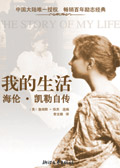wild wales-第87部分
按键盘上方向键 ← 或 → 可快速上下翻页,按键盘上的 Enter 键可回到本书目录页,按键盘上方向键 ↑ 可回到本页顶部!
————未阅读完?加入书签已便下次继续阅读!
the bwlch; and presently came to a place where the two waters
joined。 Just below the confluence on a fallen tree was seated a
man decently dressed; his eyes were fixed on the rushing stream。 I
stopped and spoke to him。
He had no English; but I found him a very sensible man。 I talked
to him about the source of the Dyfi。 He said it was a disputed
point which was the source。 He himself was inclined to believe
that it was the Pistyll up the bwlch。 I asked him of what religion
he was。 He said he was of the Church of England; which was the
Church of his father and his grandfather; and which he believed to
be the only true Church。 I inquired if it flourished。 He said it
did; but that it was dreadfully persecuted by all classes of
dissenters; who; though they were continually quarrelling with one
another; agreed in one thing; namely; to persecute the Church。 I
asked him if he ever read。 He said he read a great deal;
especially the works of Huw Morris; and that reading them had given
him a love for the sights of nature。 He added that his greatest
delight was to come to the place where he then was of an evening;
and look at the waters and hills。 I asked him what trade he was。
〃The trade of Joseph;〃 said he; smiling。 〃Saer。〃 〃Farewell;
brother;〃 said I; 〃I am not a carpenter; but like you I read the
works of Huw Morris and am of the Church of England。〃 I then shook
him by the hand and departed。
I passed a village with a stupendous mountain just behind it to the
north; which I was told was called Moel Vrith or the party…coloured
moel。 I was now drawing near to the western end of the valley。
Scenery of the wildest and most picturesque description was rife
and plentiful to a degree: hills were here; hills were there; some
tall and sharp; others huge and humpy; hills were on every side;
only a slight opening to the west seemed to present itself。 〃What
a valley!〃 I exclaimed。 But on passing through the opening I found
myself in another; wilder and stranger; if possible。 Full to the
west was a long hill rising up like the roof of a barn; an enormous
round hill on its north…east side; and on its south…east the tail
of the range which I had long had on my left … there were trees and
groves and running waters; but all in deep shadow; for night was
now close at hand。
〃What is the name of this place?〃 I shouted to a man on horseback;
who came dashing through a brook with a woman in a Welsh dress
behind him。
〃Aber Cowarch; Saxon!〃 said the man in a deep guttural voice; and
lashing his horse disappeared rapidly in the night。
〃Aber Cywarch!〃 I cried; springing half a yard into the air。 〃Why;
that's the place where Ellis Wynn composed his immortal 'Sleeping
Bard;' the book which I translated in the blessed days of my youth。
Oh; no wonder that the 'Sleeping Bard' is a wild and wondrous work;
seeing that it was composed amidst the wild and wonderful scenes
which I here behold。〃
I proceeded onwards up an ascent; after some time I came to a
bridge across a stream; which a man told me was called Avon Gerres。
It runs into the Dyfi; coming down with a rushing sound from a wild
vale to the north…east between the huge barn…like hill and Moel
Vrith。 The barn…like hill I was informed was called Pen Dyn。 I
soon reached Dinas Mawddwy; which stands on the lower part of a
high hill connected with the Pen Dyn。 Dinas; trough at one time a
place of considerable importance; if we may judge from its name;
which signifies a fortified city; is at present little more than a
collection of filthy huts。 But though a dirty squalid place; I
found it anything but silent and deserted。 Fierce…looking; red…
haired men; who seemed as if they might be descendants of the red…
haired banditti of old; were staggering about; and sounds of
drunken revelry echoed from the huts。 I subsequently learned that
Dinas was the head…quarters of miners; the neighbourhood abounding
with mines both of lead and stone。 I was glad to leave it behind
me。 Mallwyd is to the south of Dinas … the way to it is by a
romantic gorge down which flows the Royal Dyfi。 As I proceeded
along this gorge the moon rising above Moel Vrith illumined my
path。 In about half…an…hour I found myself before the inn at
Mallwyd。
CHAPTER LXXV
Inn at Mallwyd … A Dialogue … The Cumro。
I ENTERED the inn; and seeing a comely…looking damsel at the bar; I
told her that I was in need of supper and a bed。 She conducted me
into a neat sanded parlour; where a good fire was blazing; and
asked me what I would have for supper。 〃Whatever you can most
readily provide;〃 said I; 〃I am not particular。〃 The maid retired;
and taking off my hat; and disencumbering myself of my satchel; I
sat down before the fire and fell into a doze; in which I dreamed
of some of the wild scenes through which I had lately passed。
I dozed and dozed till I was roused by the maid touching me on the
shoulder and telling me that supper was ready。 I got up and
perceived that during my doze she had laid the cloth and put supper
upon the table。 It consisted of bacon and eggs。 During supper I
had some conversation with the maid。
MYSELF。 … Are you a native of this place?
MAID。 … I am not; sir; I come from Dinas。
MYSELF。 … Are your parents alive?
MAID。 … My mother is alive; sir; but my father is dead。
MYSELF。 … Where does your mother live?
MAID。 … At Dinas; sir。
MYSELF。 … How does she support herself?
MAID。 … By letting lodgings to miners; sir。
MYSELF。 … Are the miners quiet lodgers?
MAID。 … Not always; sir; sometimes they get up at night and fight
with each other。
MYSELF。 … What does your mother do on those occasions?
MAID。 … She draws the quilt over her head; and says her prayers;
sir。
MYSELF。 … Why doesn't she get up and part them?
MAID。 … Lest she should get a punch or a thwack for her trouble;
sir。
MYSELF。 … Of what religion are the miners?
MAID。 … They are Methodists; if they are anything; but they don't
trouble their heads much about religion。
MYSELF。 … Of what religion are you?
MAID。 … I am of the Church; sir。
MYSELF。 … Did you always belong to the Church?
MAID。 … Not always。 When I was at Dinas I used to hear the
preacher; but since I have been here I have listened to the
clergyman。
MYSELF。 … Is the clergyman here a good man?
MAID。 … A very good man indeed; sir。 He lives close by。 Shall I
go and tell him you want to speak to him?
MYSELF。 … Oh dear me; no! He can employ his time much more
usefully than in waiting upon me。
After supper I sat quiet for about an hour。 Then ringing the bell;
I inquired of the maid whether there was a newspaper in the house。
She told me there was not; but that she thought she could procure
me one。 In a little time she brought me a newspaper; which she
said she had borrowed at the parsonage。 It was the CUMRO; an
excellent Welsh journal written in the interest of the Church。 In
perusing its columns I passed a couple of hours very agreeably; and
then went to bed。
CHAPTER LXXVI
Mallwyd and its Church … Sons of Shoemakers … Village Inn …
Dottings。
THE next day was the thirty…first of October; and was rather fine
for the season。 As I did not intend to journey farther this day
than Machynlleth; a principal town in Montgomeryshire; distant only
twelve miles; I did not start from Mallwyd till just before noon。
Mallwyd is a small but pretty village。 The church is a long
edifice standing on a slight elevation on the left of the road。
Its pulpit is illustrious from having for many years been occupied
by one of the very celebrated men of Wales; namely Doctor John
Davies; author of the great Welsh and Latin dictionary; an
imperishable work。 An immense yew tree grows in the churchyard;
and partly overshadows the road with its branches。 The parsonage
stands about a hundred yards to the south of the church; near a
grove of firs。 The village is overhung on the north by the
mountains of the Arran range; from which it is separated by the
murmuring Dyfi。 To the south for many miles the country is not
mountainous; but presents a pleasant variety of hill and dale。
After leaving the village a little way behind me I turned round to
take a last view of the wonderful region from which I had emerged
on the previous evening。 Forming the two sides of the pass down
which comes 〃the royal river〃 stood the Dinas mountain and Cefn
Coch; the first on the left; and the other on the right。 Behind;
forming the background of the pass; appearing; though now some
miles distant; almost in my proximity; stood Pen Dyn。 This hill
has various names; but the one which I have noted here; and which
signifies the head of a man; perhaps describes it best。 From where
I looked at it on that last day of October it certainly looked like
an enormous head; and put me in mind of the head of Mambrino;
mentioned in the master work which commemorates the achievements of
the Manchegan knight。 This mighty mountain is the birthplace of
more than one river。 If the Gerres issues from its eastern side;
from its western springs the Maw; that singularly picturesque
stream; which enters the ocean at the place which the Saxons
corruptly call Barmouth and the Cumry with great propriety Aber
Maw; or the disemboguement of the Maw。
Just as I was about to pursue my journey two boys came up; bound in
the same direction as myself。 One was a large boy dressed in a
waggoner's frock; the other was a little fellow in a brown coat and
yellowish trowsers。 As we walked along together I entered into
conversation with them。 They came from Dinas Mawddwy。 The large
boy told me that he was the son of a man who carted mwyn or lead
ore; and the little fellow that he was the son of a shoemaker。 The
latter was by far the cleverest; and no wonder; for the son of
shoemakers are always clever; which assertion should anybody doubt
I beg him to attend the examinations at Cambridge; at which he will
find that in three cases out of four the senior wranglers are the
sons of shoemakers。 From this littl
![[网王同人]colorless wind封面](http://www.baxi2.com/cover/noimg.jpg)



